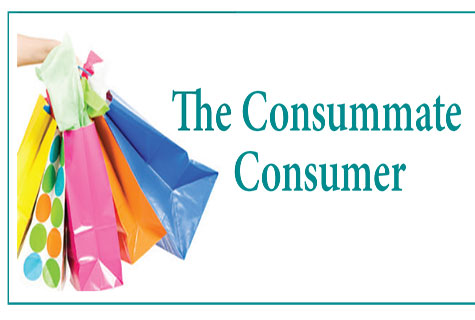It all started when I picked up a local freebie magazine. On the front cover, there was an advertisement that someone must have thought was a clever marketing campaign, but in reality, was actually in extremely poor taste. Intending to show that utilizing this company’s services could help customers realize significant financial benefits, the advertisement depicted an obviously Jewish man crossing a very clear ethical boundary in order to save a nice amount of money.
I have no doubt that both the company and the firm that designed the ad thought it was a lighthearted joke and a great way to draw business from thousands of potential customers in the greater New York area. I am guessing that the owners of the magazine must have found the ad in good taste as well if they allowed it to grace the front cover. And I am equally sure that no one fully appreciated that this ad was a tremendous chillul Hashem, and had it been printed in a secular publication it would have been widely denounced as anti-Semitic. Mulling it over, it occurred to me that we have been bombarded with a steady barrage of marketing campaigns that have gone too far, although perhaps in a different way.
‘);
_avp.push({ tagid: article_top_ad_tagid, alias: ‘/’, type: ‘banner’, zid: ThisAdID, pid: 16, onscroll: 0 });
I’m willing to bet that you have seen more than your fair share of ads that drip with snob appeal, planting the idea in readers’ heads that they need and deserve luxury items in order to feel fulfilled. In another publication I saw a full-page ad from a sukkah company that left me scratching my head. Don’t get me wrong – I don’t have a problem with sukkah companies tooting their own horns by talking about the many features that make their product stand out. This ad, though, marketed textured walls as a draw for “discerning clients,” the message being that if you consider yourself to be a cut above your friends and neighbors, clearly this was the sukkah for you.
I wondered if the sukkah ad was an anomaly, but sadly, it wasn’t. There was the page from the kitchenware store sharing the secret for a “perfect marriage” with brides to be. Nope, it wasn’t about learning to compromise or being a good listener; the key to marital bliss according to this store was investing in “exclusive quality kitchenware.” Another page featured apparel with “class” for toddlers, because clearly our toddlers need to preserve their sense of dignity while they are stomping in mud puddles. A second clothing company for the younger set described itself as the place to shop for “impeccable” attire, because doesn’t every child aspire to be spotless and perfect? A full color page clearly drawing on the Rosh Hashanah spirit advised readers to live beautifully in the upcoming year, a goal that could be achieved by, drum roll please, buying new jewelry. And the one that definitely took the cake for me was one from a store selling designer and vintage clothing advising that they could help mothers whose teenaged daughters were sitting in their rooms crying because they had nothing to wear. Is that the parenting message of 2019? That not having a cute outfit is a reason to cry? And that the solution involves designer clothing for teens?
We are living in a society where the bar gets raised higher and higher every year, and where today’s splurge becomes tomorrow’s necessity, while there are so many people who simply can’t make ends meet. I do understand that every publication, including this one, has costs to cover and that ads make it all happen, but I have a nice sized stack of magazines and newspapers on my desk whose ads don’t project an aura of exclusivity. Instead they have attractive graphics, photographs and verbiage that discuss their product’s practicality and usefulness without attempting to blur the line between wants and needs.
This same phenomenon has been playing itself out in at least one other arena that I have noticed as well: cooking. I love to experiment in the kitchen and am always on the lookout for new ideas. But over the last few years it seems as if a large majority of the recipes printed in our publications are intended for those who have hours to spend in the kitchen and no other responsibilities. Personally, when I come across a recipe with too many steps or weird ingredients that I will never use for anything else (here’s looking at you, vital wheat gluten and whole coriander seeds) I have no problem simply turning the page. But I picture these young wives who are working full time and thinking they are shortchanging their families by not making these gourmet meals. And yes, I understand that there are times that you want to go all out, where painting melted chocolate onto balloons to make chocolate cups for your ice cream sounds like a really good idea and special occasions where you might want to prepare a standing rib roast, but what ever happened to serving roast chicken, rice and a nice salad for supper and calling it a night?
It goes without saying that there are people who are more financially stable than others and no one has a right to tell any of us how to spend our money, nor should we even be looking at anyone else’s purchasing habits. But when it comes to spending our own money, we have choices. If you find a particular company’s advertising doesn’t resonate with you, you can feel free to take your business elsewhere, although if you feel that an ad pushes the boundaries of good taste and sensitivity, don’t be shy about contacting them to share your thoughts – in a appropriate and respectful way.
The same goes if you find that particular publications habitually glorify conspicuous consumption and create a need for luxury items in order to keep up with the Cohenses. Feel free to reach out to the editor and share your opinions, albeit politely, letting them know that running pages and pages of ads for luxury items creates an artificial need for premium products that most people can’t afford. They may not be aware that certain pages give off a vibe that creates tremendous societal pressures and hearing it from a reader or two or ten might have them rethinking their advertising policies. And if doing that still doesn’t help, then you need to decide for yourself if this is a magazine that you want in your house.
What’s the takeaway here: Just say no to pressures you don’t need. Just because your neighbor’s baby is dressed in haute couture doesn’t mean yours has to be. And if your sister likes to cook gourmet meals every night, don’t feel like you have to follow her lead unless you really want to. Take a moment and ask yourself if a frying pan really is the key to marital harmony or if your baby really needs a $25 headband. If the answer is yes, then go ahead and spend the money if you want, but don’t do it just because you feel you have no choice.
There’s always a choice.
Just say no.
<!–
Publisher #16: JewishPress.com
Zone #113: Comment Banner / (02) / News
Size #15: Banner 468×60 (Comments and Mobile) [468×60]
–> ‘);
_avp.push({ tagid: article_top_ad_tagid, alias: ‘/’, type: ‘banner’, zid: ThisAdID, pid: 16, onscroll: 25 });




